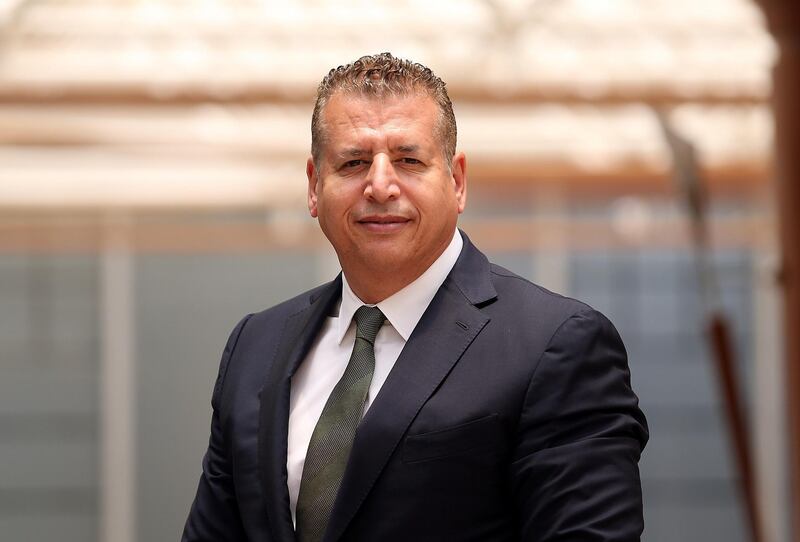Abu Dhabi National Hotels, a publicly traded holding company with Dh11.4 billion worth of assets in its portfolio, is open to new acquisitions in the Middle East and beyond, following its purchase of several Dubai hotels from Emaar Properties this year, its chief executive said.
In February, ADNH bought five flagship hotels from Emaar Hospitality Group, a subsidiary of Dubai-listed real estate company Emaar Properties, for Dh2.2bn. The hotels were the Address Dubai Mall, Address Boulevard, Address Dubai Marina, Vida Downtown and Al Manzil Downtown, which together account for around 1,000 hotel rooms.
Abu Dhabi-listed ADNH is also eyeing joint ventures to streamline its subsidiary operations in retail and transport – along the lines of its longstanding catering and support services JV with UK-based Compass Group, created in 2001.
"Our cash position is healthy and we of course are looking at new acquisitions – though no deals are pending at present," Khalid Anib told The National at his office in Abu Dhabi.
“Our main focus would be hotels in the UAE but if there was a compelling opportunity in the GCC, North Africa, London or elsewhere, and it would increase value to shareholders, we would consider.” ADNH would seek financing on a case-by-case basis if required, he said.
ADNH has minority stakes in hotel assets in Morocco and Egypt – both fast-growing hospitality markets and among the few Middle East and North Africa markets to have registered room rate increases in recent years. Mena hotels in general have suffered double-digit annual declines in revenues and average daily rates since 2014, as low oil prices have dented consumer purchasing power, and rising supply of hotel keys heaps downward pressure on prices.
Like other hotel firms, ADNH has sought to cut its costs in a tough market. In the past two years, it slashed the group’s headcount by around 20 per cent, according to Mr Anib – equivalent to around 150 people out of a typical 500-strong workforce at each of its hotels – reduced staff accommodation costs and launched a centralised procurement system to achieve supply chain efficiencies across the portfolio.
ADNH reported a 2.7 per cent annual net profit decline in the first quarter of 2019, accelerating its top-line growth from a 6.9 per cent profit drop in the corresponding period of 2018. The chief executive said this represented “a pretty good performance considering the challenging conditions. We anticipated a soft market [two years ago], which is why we came up with the consolidation plan, and we are very glad we did.”
The UAE hotel market is currently oversupplied, he added, which has pushed down average room rates across ADNH’s Abu Dhabi portfolio by as much as 30 per cent cumulatively over the past two years, and in Dubai by around 15 per cent. Occupancy rates have held up, at around 80-85 per cent for five-star resorts, and 60-65 per cent for upscale luxury properties.
The Emaar hotels are outperforming much of the rest of ADNH’s portfolio due to their prime locations, recent refurbishments and other desirable factors. “Ongoing business looks healthy and we are confident the hotels will continue to perform well,” Mr Anib said.
He expects average room rates across the UAE to stay muted until around the fourth quarter. “We will continue to monitor costs and stay innovative,” he said. This could include the formation of new JVs, particularly to manage its retail services and transport units (it has a fleet of private cars under its subsidiary Al Ghazal Transport Company, and three coffee shop brands under licence from the UK and US). While Al Ghazal’s net profit rose 60 per cent year-on-year in Q1, retail profits plummeted 45 per cent amid a sluggish market.
Another way in which ADNH aims to defend future growth is by clubbing together with local hotel owners and operators to stabilise room rates across the emirates. This could be in the form of agreements on minimum rates to reduce competition and prevent undercutting, and/or a freeze on licences to new hotel operators.
"I would look at introducing tools to stop rates from going any lower," Mr Anib told The National. "We'd like to see this [a licensing freeze] to stop the pace of supply." The company is in the "brainstorming" phase and has yet to put its suggestions to government officials.







